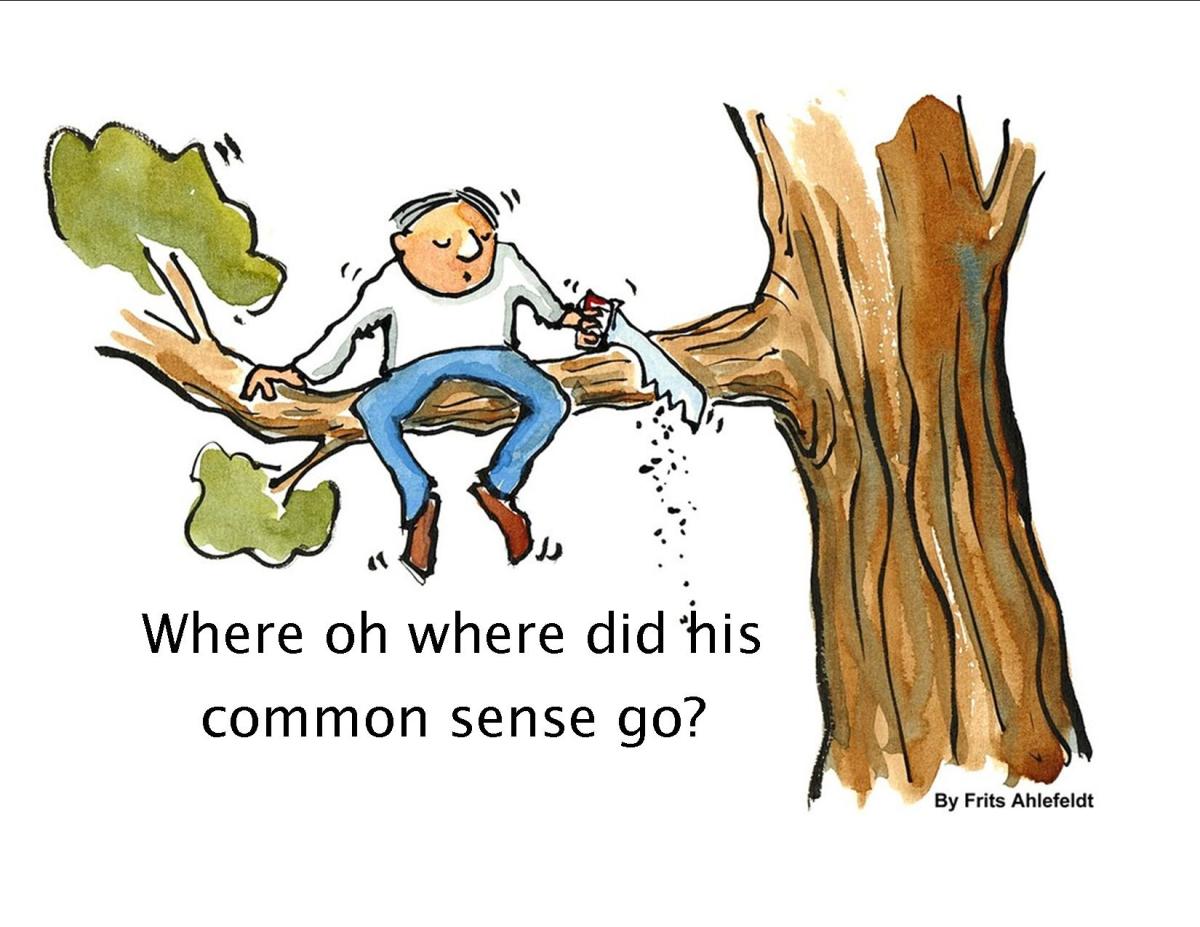Cliches: To Use or Not To Use?
Don't be upset about something that already happened.
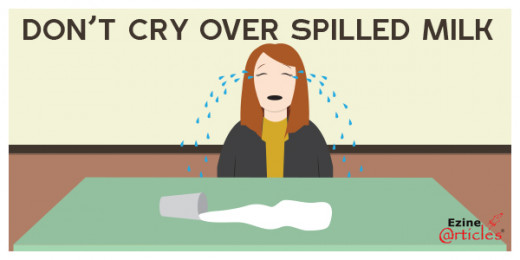
Meanings and Origins
My wife and I babysat our two grand-children this weekend. My wife was getting the kids ready to drive home and the kids were readily doing everything my wife was telling them, but in an amazing fast pace. I joked with her that she'd make a good drill sergeant in the army. She laughed but said, "if the shoe fits, then wear it." And that got me to thinking about all the cliches we use in our society still. According to 'Dictionary.com', a cliché is defined as "a trite, stereotyped expression; a sentence or phrase, usually expressing a popular or common thought or idea, that has lost originality, ingenuity, and impact by long overuse, as sadder but wiser, or strong as an ox." Quite a detailed definition.
These cliché type phrases are meaningful and all have a real origin. They certainly make our language interesting. Sometimes the origins are what we might have thought, but many times the true origin of a saying is totally surprising, something we'd never think it was. Just for fun, here's a few to look at with keeping in mind that a cliché is popular, but not original and has long been over-used.
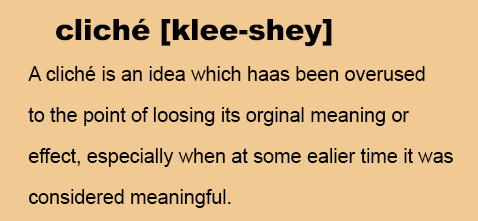
Cliches and where they came from.
There are sayings that start with virtually every letter of the English language. Don't worry, I won't go through all 26 letters here. But the funny thing is, once I started researching this topic, I became addicted to these sayings. There must be hundreds of cliches across the board and many have origins that are disputed and believed to have originated from another source, still the cliché became popular. There is some fun to be had. Look at some examples.
- 'It cost and arm and a leg'. This sadly comes about from the time period sometime after WWII. The saying used arms and legs as examples everyone could relate to as a person would never consider selling something so precious, even at enormous sums of money. WWII had just ended, there were many stories of the human "cost" of the war. Many times the stories centered around servicemen who had lost an arm or a leg while serving and was meant to remind us of the serious consequences it cost these brave servicemen.
- "Break a Leg". No, it wasn't from The Godfather making an offer you can't refuse. It actually was derived from the superstitious beliefs in the entertainment industry that saying 'good luck' to an actor was dooming him to a bad performance. By wishing someone bad luck, it is supposed that the opposite will occur. Thus, it became the norm to say this instead of good luck.
- "My bad". A very recent phrase, supposedly started in 1970. It was a slang term used "on the streets." My bad' came into widespread popular use in the mid to late-1990s in the USA via the 1995 movie “Clueless." A character in the film almost runs over a person riding a bike, hastily swerves out of the way and used the term, "Whoops. My bad."
These are just a few sayings with meanings given. There's almost an endless list of familiar cliches...'Cat got your tongue?', 'Chip off the old block.', "Katy bar the door', 'Booby Trap', 'I'm on cloud nine, break the ice, I'll be a monkeys uncle....you get idea right?
Cliches kill a written presentation.
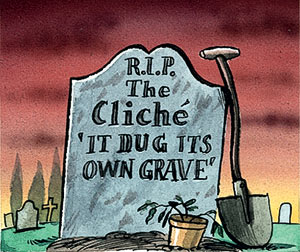
Considering we all say these type things and even more annoying, that when we are the recipient of one of these sayings, it always is at a time something goes haywire and the last thing you need is this someone adding to your frustration, it is a useful way of communicating. For starters, the sayings are so familiar to most of us, there's no misunderstanding what the other person meant. It's common to all of us and proves an effective way to convey a message.
Most analysts will say that the cliché type saying is a negative thing since it is over-used and largely ineffective. And leaders in the business community say cliches weaken the message a company wants to convey to it's customer base. To the other extreme, if they are very complex, business specific phrases, you'll lose the customer altogether. Despite all of the theories not to use them, cliches remain a strong and popular choice with our verbal communications. Interestingly, the cliches have faded significantly with the written word. The science behind this is simply explained as our brain processes such familiar and over-used sayings as meaningless words on a page due to their commonality, and are void of any meaning or association to a concept.
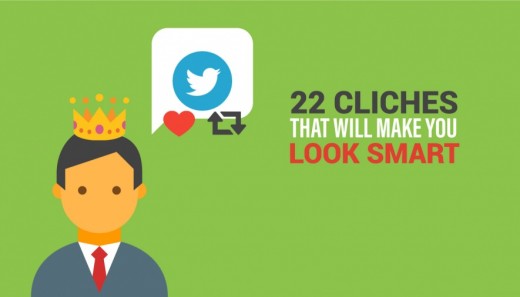
Can be useful too!
Despite the majority of sayings that can seem frivolous, there are some that have actual,true and factual meaning. The best example I came across was the saying, "I'll be with you in a jiffy." A jiffy is an actual measure of time. There's no universal time interval as different length of mere fractions of a second have been established in various industries such as electronics, computers, physics and even something called the Planck time calculated from an algebraic formula for those chemists and quantum physic guys and gals.
Then there's another whole array of sayings that are meant to be used as a motivational tool to help us improve our lifes. Example include;
- Don’t be afraid your life will end; be afraid that it will never begin. from Grace Hansen
- Courage is like a muscle. We strengthen it with use. from Ruth Gordon
- It doesn't matter how slow you go as long as you do not stop. from Confucius
- Keep your face to the sunshine and you cannot see a shadow. from Helen Keller
It all boils down to one main theme. Words are and will always have a great impact in our life no matter what form they come at us in. And some people have become masters of using words to create change. But the more we understand why some sayings are always repeated and the origin behind them, "it's all gravy.
Is one of these your favorite cliche?
What is a cliche you often use?
This content is accurate and true to the best of the author’s knowledge and is not meant to substitute for formal and individualized advice from a qualified professional.
© 2015 Ken Ratajczak








